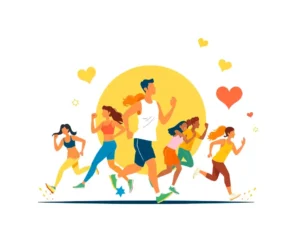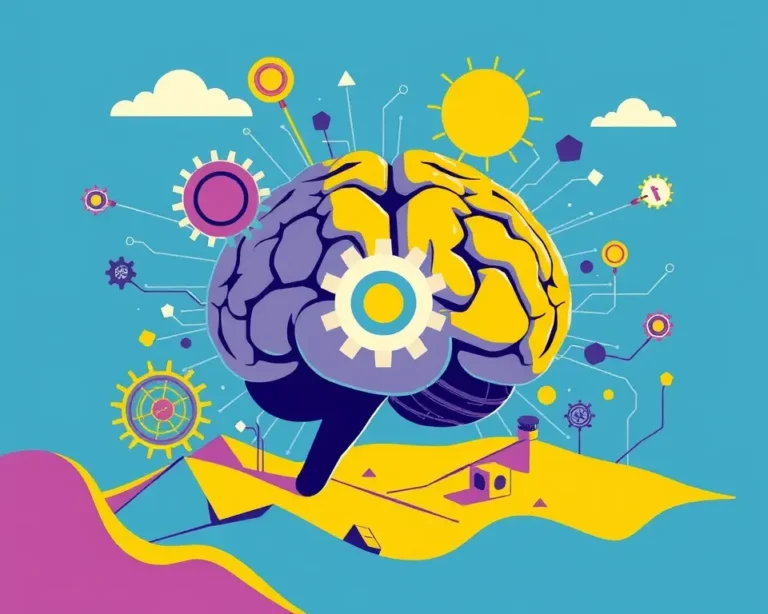Puzzles and mind games are more than just a fun way to pass the time; they’re powerful tools that can shape your mental health, build resilience, and even enhance your career prospects. From the simple satisfaction of completing a jigsaw to the strategic thinking required in chess, these activities offer a wealth of cognitive and emotional benefits.
The Science Behind the Fun: How Puzzles Work
Engaging with puzzles activates multiple cognitive processes simultaneously, creating new neural pathways and strengthening existing ones—a process called neuroplasticity. This enhanced brain connectivity contributes to cognitive resilience, potentially protecting against mental decline as we age.
Cognitive Calisthenics: Puzzles as a Mental Workout
Like physical exercise for the body, puzzles provide a mental workout for the brain. This mental stimulation can improve a range of cognitive functions:
- Memory: Puzzles require you to remember shapes, colors, and patterns, improving both short-term and long-term memory.
- Problem-Solving: Puzzles encourage critical thinking and strategizing, sharpening your ability to break down complex problems into manageable parts and find effective solutions.
- Visual-Spatial Reasoning: Many puzzles, especially jigsaw puzzles, require you to visualize how pieces fit together, enhancing your spatial awareness and reasoning skills.
- Attention to Detail: Puzzles demand a keen eye for detail, training you to notice subtle differences in shape, color, and pattern.
- Concentration: Immersing yourself in a puzzle requires focused attention, helping you improve your concentration and focus.
- Language Development: Word puzzles like crosswords can introduce new vocabulary and concepts, supporting language development.
Emotional Equilibrium: Puzzles and Mental Health
Beyond the cognitive benefits, puzzles can also have a positive impact on your emotional well-being.
- Stress Reduction: Concentrating on a puzzle can act as a form of active meditation, allowing you to disconnect from worries and reduce stress. Completing a puzzle can lead to decreased production of cortisol, the primary stress hormone.
- Improved Mood: Puzzles can increase the production of dopamine, a neurotransmitter that regulates mood and feelings of optimism. The sense of accomplishment and satisfaction upon completing a puzzle can also boost your mood.
- Enhanced Social Interaction: Puzzles can be a collaborative activity, promoting social connections, communication, and teamwork.
- Resilience: By working through difficulties and persisting until the puzzle is solved, you build resilience and learn the value of perseverance.
- Confidence Boost: Completing a puzzle gives you a sense of accomplishment, boosting your confidence and self-esteem.
Puzzles for All Ages: From Childhood to Senior Years
The benefits of puzzles extend across all age groups.
- Children: Puzzles support cognitive, emotional, and physical development in preschoolers. They enhance problem-solving skills, patience, and independent thinking. Puzzles also help develop fine motor skills, hand-eye coordination, and concentration.
- Adults: Puzzles can improve cognitive function, reduce stress, and boost mood in adults. They can also enhance problem-solving skills, visual-spatial reasoning, and attention to detail, which are valuable in the workplace.
- Seniors: Puzzles can help keep the brain sharp, improve memory, and delay cognitive decline in seniors. They can also provide opportunities for social engagement and a sense of accomplishment. Puzzles are powerful tools for seniors recovering from brain injuries, helping to stimulate brain function, encourage social interaction, and provide emotional support.
Types of Puzzles and Their Unique Benefits
The world of puzzles is vast and varied, with different types offering unique benefits.
- Jigsaw Puzzles: These puzzles improve visual-spatial reasoning, problem-solving skills, and short-term memory.
- Crossword Puzzles: These word puzzles enhance vocabulary, language skills, and general knowledge.
- Sudoku: This logic-based number puzzle improves critical thinking, concentration, and problem-solving skills.
- Brain Teasers: These puzzles challenge your thinking and creativity, improving problem-solving skills and cognitive flexibility.
- Word Searches: These puzzles enhance attention to detail, vocabulary, and pattern recognition.
- Physical Puzzles: These include Rubik’s Cubes and other 3D puzzles that improve spatial reasoning, problem-solving skills, and hand-eye coordination.
- Matching Games: Support sensory learning and early logic skills.
Puzzles and Career Advancement: Sharpening Your Professional Edge
The skills honed through puzzle-solving are highly valued in the workplace. By engaging in puzzles, you can develop essential skills that can boost your career prospects.
Problem-Solving Prowess
The ability to creatively solve problems and think critically is greatly valued in the workforce. Puzzles help us develop all of those important skills. Puzzles require you to take different approaches to try and solve a problem since there’s a lot of trial and error involved. You also learn the value of formulating theories, testing hypotheses, and changing your perspectives when something doesn’t work out according to plan. All these skills can easily be transferred to your work life to make you more innovative and adaptable employees.
Sharpening Cognitive Skills
- Critical Thinking: Puzzles require you to analyze situations, evaluate options, and make informed decisions, all of which are essential in many professions.
- Strategic Thinking: Many puzzles require you to plan ahead and think strategically, which is valuable in leadership roles and project management.
- Adaptability: Puzzles often require you to adjust your approach and try different strategies, enhancing your adaptability and resilience in the face of challenges.
- Decision-Making: Puzzles train you to weigh options, assess risks, and make sound decisions, improving your decision-making skills in the workplace.
Essential Workplace Skills
- Communication: Solving puzzles with others can improve your communication and collaboration skills.
- Teamwork: Working on puzzles as a team can foster cooperation, communication, and problem-solving skills.
- Patience: Puzzles require patience and perseverance, which are valuable qualities in any job.
- Attention to Detail: Being detail-oriented and precise is crucial for quality work.
Gamification in the Workplace
Gamification, the application of game-design elements and game principles in non-game contexts, is increasingly being used in the workplace to enhance employee engagement, learning, and performance.
- Upskilling: Gamification can be used to upskill your workforce through the power of game-based learning.
- Career Growth: Career growth and progression and employee retention are some of the key drivers of gamification in the workplace.
- Culture of Learning: Gamification helps in creating a culture of learning and development.
Avoiding Mind Games at Work
While puzzles and mind games can be beneficial, it’s important to be aware of negative mind games that can occur in the workplace. These games often involve hidden agendas, manipulation, and power dynamics, leading to a breakdown of trust among team members.
- Recognize the Games: Be aware of the most common psychological games at work, such as playing favorites, creating exclusive cliques, and using the “growth mirage” to extract extra work without compensation.
- Promote Open Communication: Encourage open and honest communication to address issues directly and with empathy.
- Foster a Culture of Trust: Build trust by acknowledging and appreciating positive behaviors based on collaboration and mutual respect.
- Address Issues Directly: Resolve conflicts in a constructive and transparent manner, avoiding passive-aggressive behaviors.
Integrating Puzzles into Your Life
Incorporating puzzles into your daily routine can be a fun and effective way to boost your brainpower and improve your mental well-being.
- Set Aside Time: Schedule regular puzzle-solving sessions, even if it’s just for 15-30 minutes a day.
- Choose Puzzles You Enjoy: Select puzzles that you find engaging and challenging, but not frustrating.
- Vary Your Puzzles: Try different types of puzzles to challenge different cognitive skills.
- Make it Social: Solve puzzles with friends or family to enhance social interaction and communication.
- Use Brain Training Apps: Explore online brain game resources like Lumosity and Elevate to target specific cognitive skills.
Winning Mind Games: A Career Strategy
In the corporate arena, “the mental skills of a winner are even more important than they are in sports,” said Dr. Jim Taylor, a psychologist who counsels performers in sports, business, and the arts. Corporate careers are cultivated over decades, far longer than an athlete’s youthful burst of glory. And competition in the marketplace knows no boundaries or seasons.
By honing your problem-solving skills, sharpening your cognitive abilities, and fostering a positive mindset through puzzles and mind games, you can gain a competitive edge and achieve greater success in your career.







